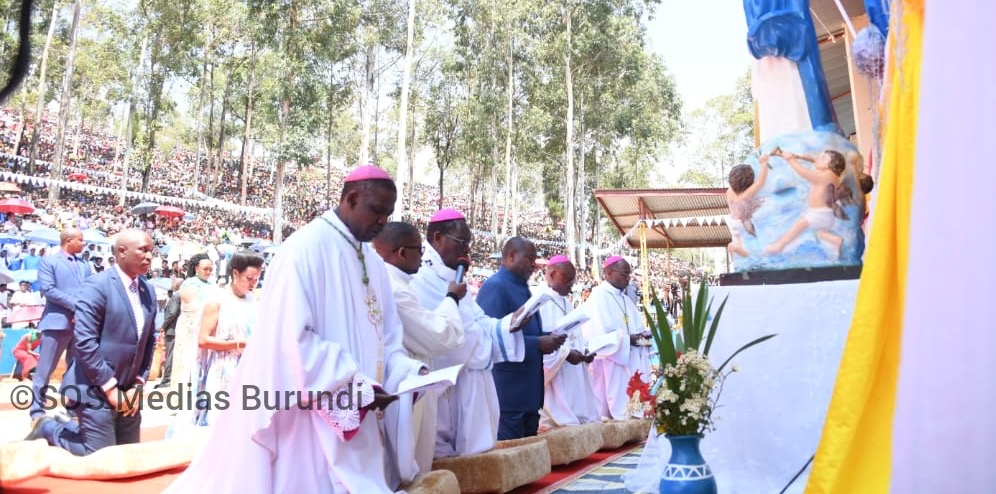Elections in Burundi : the Catholic church denounces irregularities, the government downplays them

SOS Médias Burundi
Bujumbura, June 13, 2025 — In a statement released on June 12, the Conference of Catholic Bishops of Burundi expressed serious concerns about the conduct of the June 5 double ballot. Its president, Archshop Bonaventure Nahimana, relied on reports from more than 2,400 observers deployed to approximately 30% of polling stations to denounce irregularities likely to affect the credibility of the electoral process.
Despite a generally calm atmosphere on election day, according to the observations collected, bishops affirmed that « the road to organizing free, transparent, and peaceful elections is still long. »
Among the anomalies noted : early opening of certain polling stations in the absence of polling officials, refusal of access to observers, ballot boxes already filled upon their arrival, and clear bias on the part of certain electoral officials. In several cases, voters were reportedly forced to vote for imposed candidates or prevented from freely exercising their right to vote.
Controversial minutes
Archbishop Nahimana also warned against the signing of minutes by certain observers, in violation of legal provisions. These practices, he said, undermine the transparency and legitimacy of the declared results. For the Catholic Church, it is time to « rethink and readjust the way we understand democracy » in Burundi, by addressing both the flaws in the legal framework and the dysfunctions in the organization of elections.
The government moderates its stance
Asked about these accusations, Interior Minister Martin Niteretse acknowledged, during a press conference on Thursday, the existence of a few « minor incidents » that were quickly remedied. He cited cases of torn voter cards and pressure exerted on some voters, but affirmed that immediate measures were taken to address them.
The minister also blamed certain political actors, whom he accused of seeking to discredit the results without having formally challenged them on election day. « Anyone who denies the results of the vote commits an offense and will be punished in accordance with the law, » he declared, calling for restraint and respect for public order.
A call for democratic reform
In a tone that was both pastoral and committed, Archshop Nahimana reiterated that only a democracy founded on « truth, justice, charity, and peace » will allow for the building of a more just and united Burundi. He calls on the authorities, political parties, and the civil society to strengthen democratic mechanisms to guarantee every citizen the freedom to choose their leaders.
A Burundian democracy at a crossroads
This electoral episode, marked by diametrically opposed positions between the Church and the government, highlights persistent tensions over the issue of electoral transparency in Burundi. It remains to be seen whether these signals will be ignored or taken as a starting point for building a stronger and more inclusive democracy.

